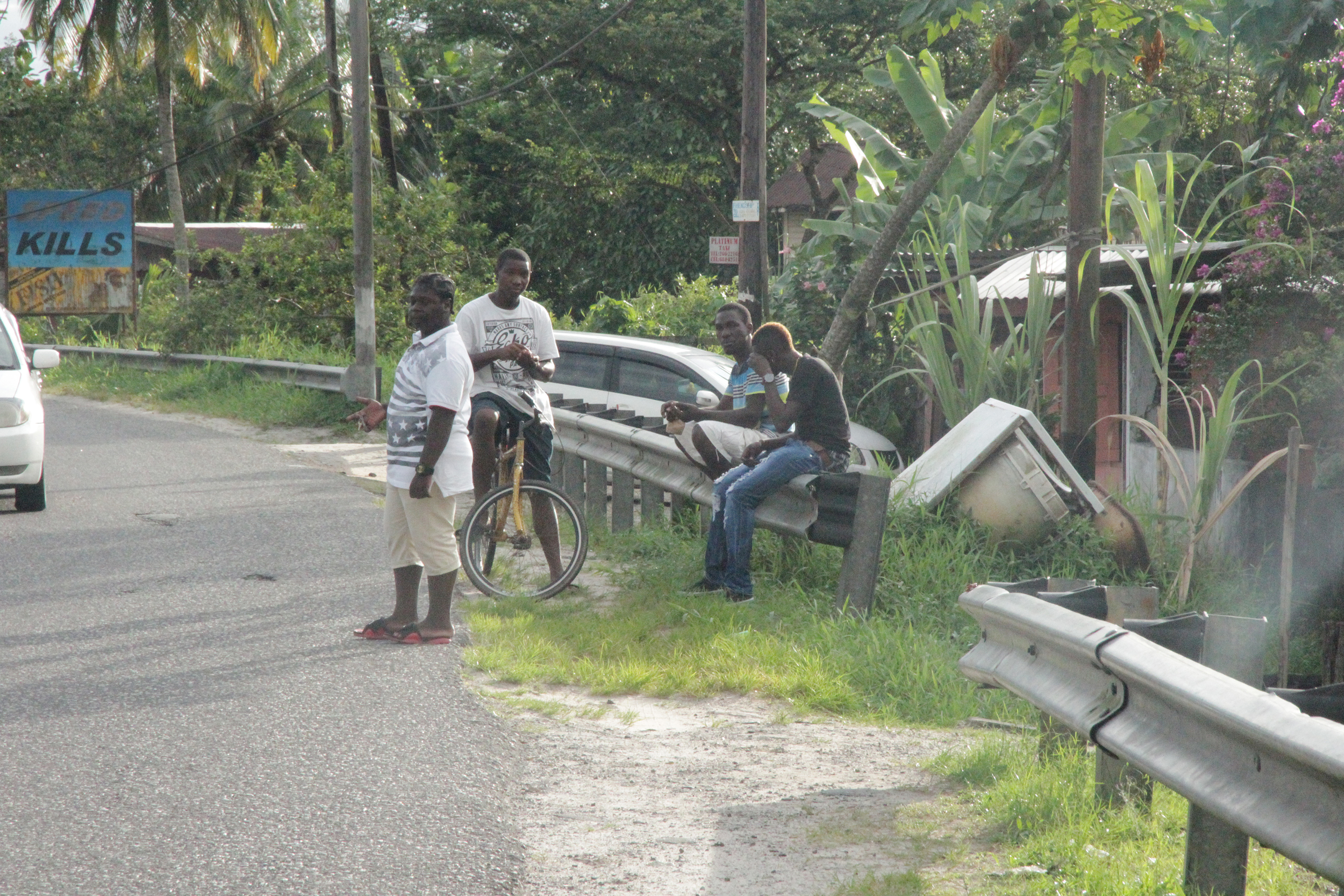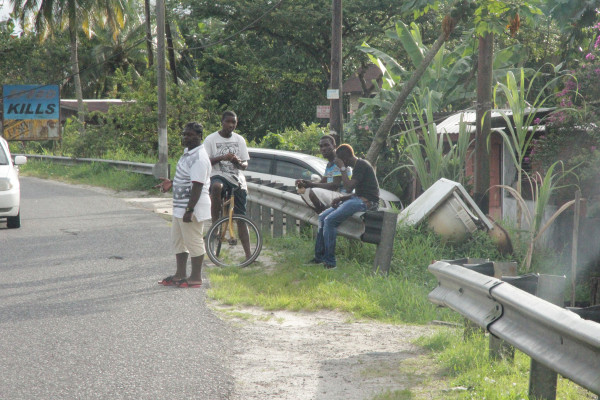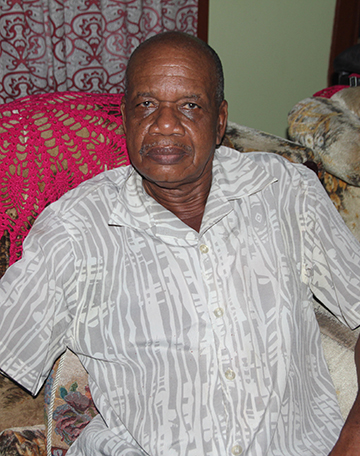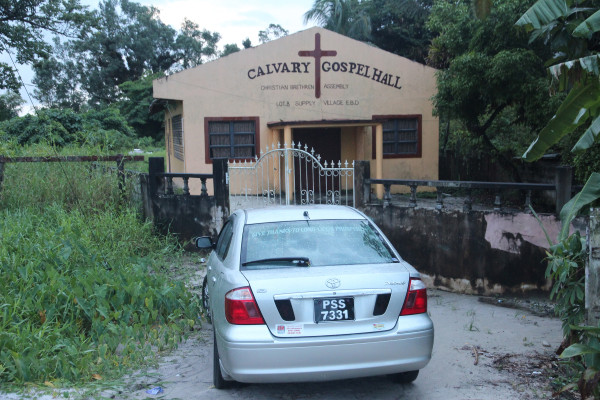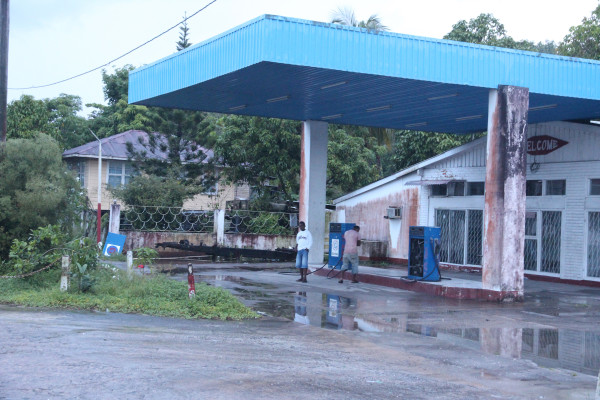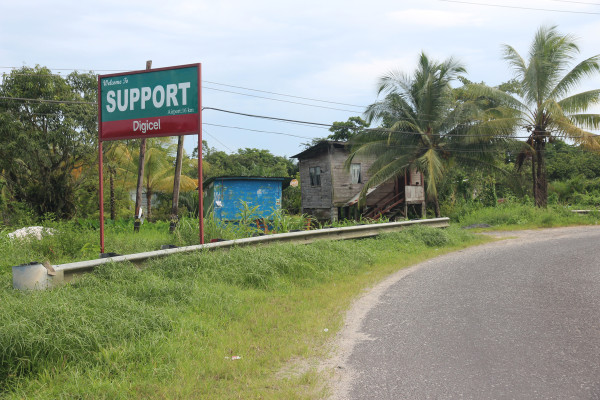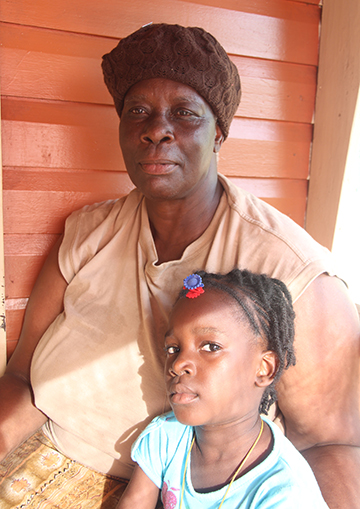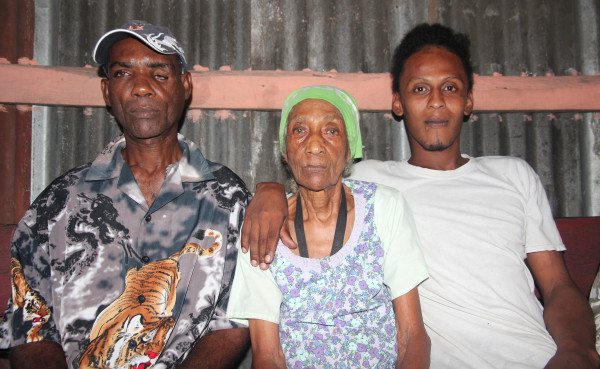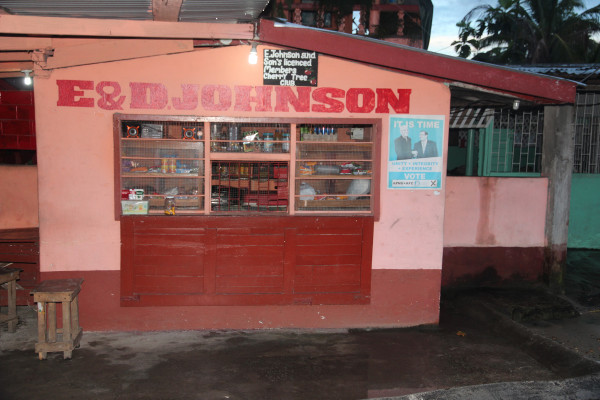Story and photos by Joanna Dhanraj
In 1954, two-year-old Nebert Perch left her home in Buxton and travelled with her mother Una Bobb Samuels and four-year-old brother Rudolph to a tiny village called Supply, today known as Support.
Her mother was a single parent trying for a better life for her children and she had migrated to Support with a few other women to cook for the men working on the bridges along the East Bank Demerara. Not very long after, she met a man who took her and the children in and Perch’s stay in Support eventually became a permanent one.
Perch recalled arriving in a village overrun by bushes. Today although houses line both sides of Support, some areas are still filled with bushes, with houses catering for a population of almost 200, peeking out here and there.
She recalled attending the Supply Primary School, then a one storey troolie building, which is now a wooden two-storey structure.
Perch said back in her days the welfare officer made checks during the week to see if children were home or in school and if you were home you had better be sick. She said that whenever they stayed home they ensured that they remained inside so as not to have any run-ins with the welfare officer whom they all feared.
Going to school in her time meant you had to keep a sharp memory since they were no books and pencils. She recalls using a slate and once the lesson was taught, the work was rubbed out, “so you had to see that you keep it up here,” said Perch, pointing to her head. There was no nursery school; kindergartens were for the well-off families who could afford to send their children to private schools.
Perch said they learnt their alphabet and numbers in “Lil ABC and Big ABC,” Prep A and Prep B or Grades One and Two. “At the end of Big ABC you had to know to read Caribbean Readers and Mr. Joe Builds A House. There were Mr. Tibbs [cat], Miss. Peg [pig], Miss. Cuddy [goat] and Percy the chick,” she said, recalling the names of the characters of the book. She and her little classmates would often assemble at the back of the school to learn their multiplication tables and to spell in syllables.
After school, Perch played along the road homeward bound but said it wasn’t considered dangerous since vehicles only passed by every two hours or so. This was because the main mode of transportation was by boat.
During those years, three chicken farms provided jobs for many of the villagers.
“Early in the mornings you’d hear the soldiers coming from a distance, doing their usual morning runs; and you know we didn’t have soldiers that were disrespected? They were some really strapping men, not like the ones we have today and we used to be scared of them. Today people are friends with the policemen but not in my days, you always stayed inside,” said a smiling Nebert.
According to her, the children of her day were more modest. “We called everybody uncle and auntie. They were mannerly young men and women. The big boys kept to themselves and the little boys were always one side, playing cricket or other games while the little girls stayed home. Today you see boys and men hanging together and little girls walking the road. The men smoking their cigarettes and the boys looking on; this is why we have young boys smoking cigarettes in our country,” she lamented.
Today, Perch enjoys planting her kitchen garden, rearing her chickens and taking care of her grandchildren. Decades later, with all the happy memories that came with Support, here will always be her home.
Around the bend from Perch, a few young men gathered together for an afternoon chat, raised a hand in greeting. A little further along is the home of 86-year-old Evangeline Johnson, believed to be the second oldest person in Support, who was enjoying the afternoon breeze and a chat with a few relatives and customers while watching television.
Johnson, who hails from Jacobus, situated way into the West Bank Demerara went to live in Support in 1961, at the age of 30, after marrying the now late, Percy Johnson. She recalled a place with a few houses but lots of bush and a red road, the East Bank Demerara Public Road, that ran through the village. According to her if you didn’t traverse by the bus or boat then you most likely took the donkey cart, which was a common mode of transportation then.
Eleven years after arriving in Support, Johnson lost her husband and was left to fend for herself and eight children, between the ages of one and 12 years old. Her eldest daughter from another union took care of the children while she worked in the cane fields, weeding. Sometimes she travelled to Timerhi where she worked on privately owned farms.
“Our young people today are more civilised. They know everything,” she said, considering the teachers, nurses and doctors Support would have produced.
She sees to it that the nearby trench is kept clean so she isn’t affected by floods.
Johnson concludes that all of the years she’s lived at Support, she’s never had a problem with any of the villagers and has come to love the peaceful nature of the village.
A few lots away lives Rodwell Gaskin, the village councillor, responsible for all of the villages from Craig to Caledonia. He lives with his wife, Violet Gaskin and son, Andrew Gaskin. Of the 32 years that Gaskin’s been living here, he’s spent 21 of them voluntarily working as a councillor. He said he loves helping the people in his community. In most cases, he helps villagers with environmental issues, mainly the drainage. “The koker is blocked under the bridge by a slab of concrete which doesn’t allow a proper flow of the water. I always make reports about the koker at the RDC [Regional Democratic Council] meeting, which is held once a month but nothing has been done as yet,” he said.
Apart from the drainage, Gaskin says there aren’t any other problems. “We’ve come a far way since many years ago. We have more houses that have gone up. This is mainly a family-oriented area. Everybody looks out for everybody here,” he said.
Gaskin, an influential person in the village, not only loves doing this but is proud of his work. He said he is privileged to help his villagers and those of the nearby communities. Apart from being a village councillor, he sells icicles and custard blocks.
Donald Daniels, Gaskin’s neighbour has been living in Support all his life. Although he didn’t have much to say, the enthusiastic villager sang high praises of his village. The carpenter reminisced about his childhood days when he would have gone to Supply Primary then Campbell’s Primary in Eccles. According to Daniels, he always looked forward to the August vacation since he did not do so well academically and those being the days of the “wild cane” and “bamboo,” he couldn’t wait to get out of school. However he’s managed to make a fine life for himself and family and said he couldn’t ask for anything more.
Having visited a few countries himself, Daniels considers Guyana, the best country in the world and Support, one of the best villages if not the best. “No matter where you go, Support always calls you back,” he said.
